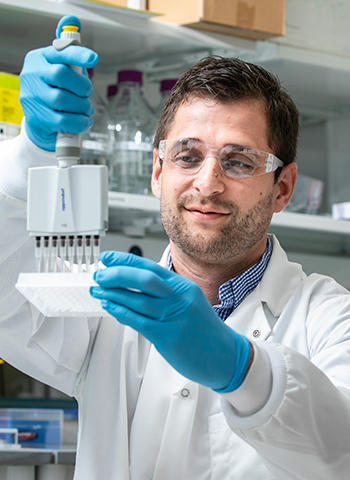Our bioengineering researchers are nationally recognized experts whose work is having an impact on the health and well-being of people everywhere. Our key areas of research are Biomedical Imaging and Devices, Computational Biomedical Engineering, Biomaterials and Nanomedicine, and Neurotechnology and Computational Neuroscience.
"Our goal is to help amputees go about their daily lives with improved function."
Discovering New Ways to Improve Health
Mason's Bioengineering Department is making a difference in people’s lives. Consider:
-
Our researchers are working on nanomedicine and biomaterials with the potential to treat cancer and degenerated joint tissues and to stimulate the immune system to fight infectious diseases.
-
We develop computational models to study blood flow in the brain to understand how aneurysms form, progress, and rupture, and to correct diseases of the eye. This work receives funding from the National Institutes of Health.
-
We are using the latest ultrasound technology to improve prosthetics for arms, hands, and legs with funding from the National Science Foundation and the Department of Defense.
-
We are putting together maps of neuron connections in the brain to understand brain function and neurological diseases, funded by the National Institutes of Health.
Faculty members in the Bioengineering Department are leaders in their respective areas. They make an impact through publications in high-quality journals, and they translate their findings and technologies to clinicians and commercialization partners.
Students, both undergraduate and graduate, are fully engaged in research from the beginning of their studies with ample opportunities to work with researchers from different areas.

Remi Veneziano, assistant professor of bioengineering, is using DNA nanotechnology to lay the foundation for developing vaccines that could block infection.
